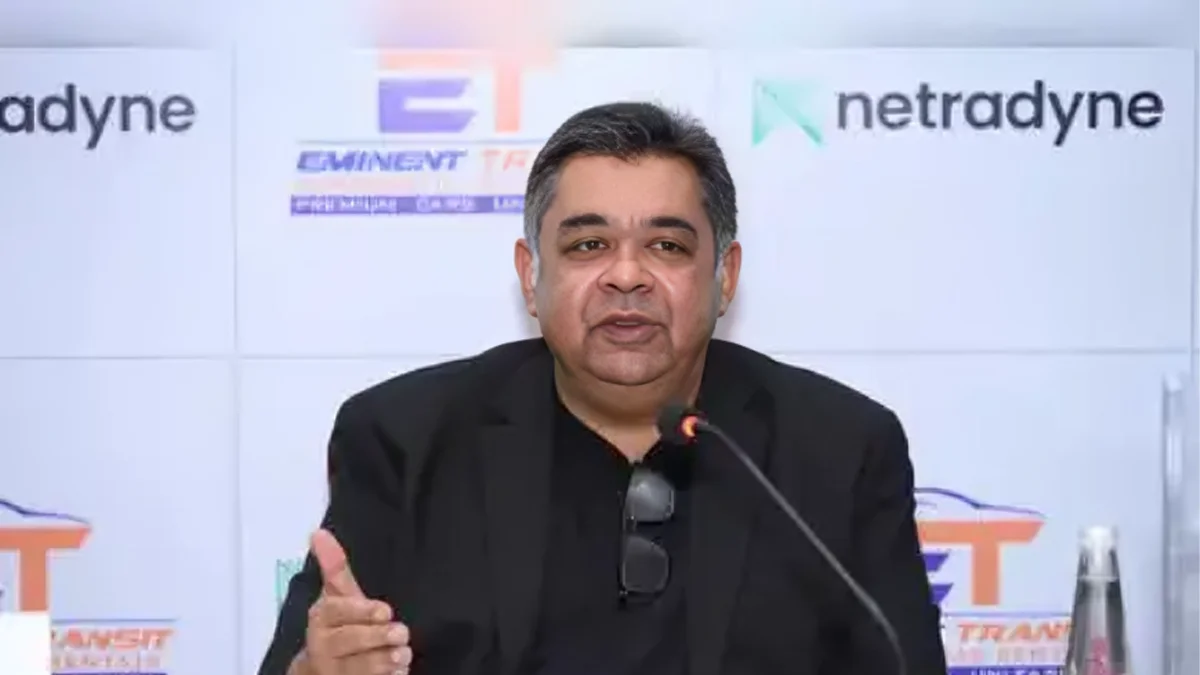Necessary Always Active
Necessary cookies are required to enable the basic features of this site, such as providing secure log-in or adjusting your consent preferences. These cookies do not store any personally identifiable data.
|
||||||
|
||||||
|
||||||
|

India’s First Unicorn of 2025, Netradyne, backed by SoftBank, plans to expand its operations to 15 countries by the end of 2026. The company uses AI-powered technology to improve driver and fleet safety and operates in 10 countries. According to The Economic Times, it will also launch in Japan and Spain by the end of 2025 and enter Ireland, France, and Italy by the end of 2026.
Netradyne, valued at $1.3 billion, is also targeting India’s ride-hailing and employee transport markets with its AI dashcam system. The company has offices in Bengaluru, San Diego, and San Francisco, with a strong research and development (R&D) base in India.
Netradyne offers AI-powered solutions that help fleets and drivers improve road safety. Its product, “Driver•i,” is a camera system that records and analyzes 100% of the driving time. The system tracks driving behaviors in real time to warn drivers about potential risks. This has led to improved driver behavior and a reduction in accidents.
The company works with over 3,000 clients across the world in industries like online retail, food and beverages, oil and gas, transport, utilities, and construction. Some of its major clients include Amazon, Shell, Pepsi, Reliance Industries, and Hindustan Unilever.
This AI-powered fleet safety startup has demonstrated successful and steady expansion, employing more than 850 people globally and 650 in India. Netradyne is already active in the US, India, Canada, Mexico, Germany, the UK, Belgium, the Netherlands, Australia, and New Zealand. The company operates through a flexible business structure that employs remote workers instead of maintaining costly physical facilities. These cost-efficient strategies have contributed to the company’s rapid growth.
Earlier in 2025, Netradyne raised $90 million in a Series D funding round. It received investments from companies like Point72 Private Investments, Qualcomm Ventures, and Pavilion Capital. With this funding, the total investment in Netradyne has reached $308 million, helping the company join the unicorn club. The company is currently backed by investors like SoftBank Vision Fund, Silicon Valley Bank, Reliance Industries, and several others.
Netradyne is not just focusing on global expansion. It is also paying close attention to India’s growing ride-hailing and employee transportation sector. The company recently partnered with Eminent Transit, a company that provides corporate travel and staff transportation services across 160 cities in India.
“We serve over 70 corporations with a combination of fleets, delivering executive-class journeys. Deploying Netradyne’s Driver•i technology not only improves the safety, reliability, and efficiency of our services but also provides essential protection for women employees traveling late at night,” said Ravi Kiran, CEO of Eminent Transit. Through this collaboration, Netradyne’s AI monitoring solutions would provide daily travel protection, especially for female passengers.
The company also takes data privacy seriously. “We anonymize number plates and pedestrian faces seen through the external camera. There is no intermingling of data, nor do we provide a customer’s data to a third party,” said Nedungadi.
Netradyne’s AI dashcam system does more than just record videos. The AI system monitors dangerous driving behaviors, including excessive braking, speeding, distracted driving, and more. This data helps fleet managers act quickly and improves overall driver performance. It also protects drivers from false claims, lowers insurance costs, and makes compliance easier to manage.
“The fundamental difference between autonomous driving tech and us is philosophy. Instead of imparting control to the vehicle, we give proactive control to the driver. We recognise and track far more elements than an ADAS (advanced driver-assistance system) does. We have the ability to detect anything a human eye can see through our cameras,” Nedungadi said.